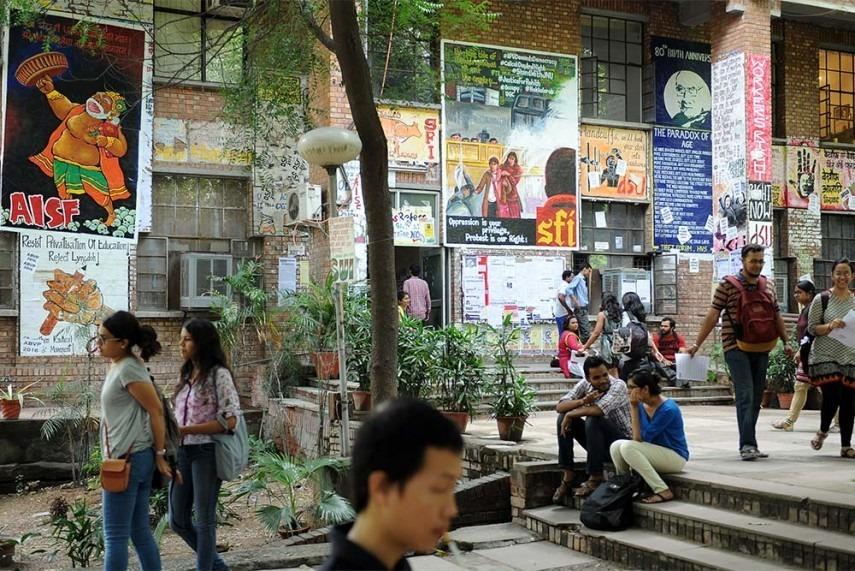On Hegemony and Global Doctoral Education
archive


On Hegemony and Global Doctoral Education
There are two ways of looking at the global reach of higher education. One is to say that the last vestige of colonialism is in academia, where—particularly in the social sciences and humanities—Western paradigms of analysis are implanted on the rest of the world. Everybody is supposed to adopt certain Western-based research models in the way we analyze social data and relationships.
On the other hand, one can argue that there is nothing more global than the production of knowledge. It is fluid, always changing, it never stays the same. For instance, the way of looking at Political Science in the late ‘60 and ‘70s is vastly different from today. Fifty years ago, we thought of the world system exclusively in terms of the nation-state. After World War II and the creation the United Nations, there was a sense of exhilaration over the fact that the world no longer consisted largely of empires. It was the high point of 20th century nationalism. Now, scarcely 50 years later, this enthusiasm seems both naive and untrue. Today, the nation-state of the Bretton Woods era is under siege: We are experiencing new forms of imperial ambitions, and our precious secular democracies threaten to collapse into all sorts of populist, religious, and ethnic reconfigurations of xenophobic nationhood and transnationality.
We need to analyze the world differently now. One of the reasons for the rise of Global Studies as a field is this demand and desire to understand and develop new ways of looking at the world, and to learn from other people in other parts of the planet who see the world differently. So, which of these two ways of looking at the global reach of higher education is correct? Is it the last vestige of colonialism or is it the best example of globalization in terms of a real shared participation? Probably both are true, and are dynamically connected.
To take an example from the field of social theory, it was in the middle of the twentieth century when people like Mao Tse-Tung in China and Jayaprakash Narayan in India picked up Marxism and reshaped the notion of socialism in non-Western contexts. It is fair to say that this represents an alternative theorization carried out by non-Western thinkers who produced an enormously rich intellectual conversation that has made an impact throughout the academic world. Again, this can be seen in two ways: One is that, yes, they were Chinese and Indian, but they were theorizing on a Western Marxist model. On the other hand, they were theorizing against the background of living in very old class and caste systems with their religious and ethnic diversities, and they needed to reconceive this theory for non-Western contexts. These scholars were looking for a way to understand social theory in the Chinese and Indian settings, and it produced kinds of scholarship that may not have been possible in different parts of the world.
While it is no doubt good that Chinese Marxism is taught in China and that Indian political thought is being taught in India, what about a reciprocal recognition: shouldn’t Indian and Chinese political theory be taught at Harvard and other Western universities, too? And if so, how can we approach and integrate this knowledge into our own systems, how should we translate an observation of the unfamiliar into a language that targets ‘our wider public’? Isn’t the very idea of conversion already a colonial gesture, making a specific regional knowledge adapt to a world system of converging concepts?
Political theory or political thought or ideas about politics are contextual. They are culturally delivered, culturally shaped, and are related to both the social and philosophic trends and flows within the milieus from which they arise. On the other hand, there is a drive towards a scientific analysis of politics based on survey research and quantitative data. We would argue that one should be cautious about the idea that you can have a universal methodology that is culture-free. The very creation of mathematical modeling of social phenomena assumes a certain understanding of the nature of society and the limited range of questions that make sense within that context. In the worst case scenario, such models define what to ask before you would ask questions that help you to know what are the right questions to ask, thereby limiting what you're going to know or how you're going to understand a particular phenomenon.
The problem is not with statistical surveys or with mathematics in general. It is the assumption that by using these tools you have a more scientific and closer understanding of a universal truth than without it. For both cases, however, what you structure with those tools determines what you will find.
...shouldn’t Indian and Chinese political theory be taught at Harvard and other Western universities, too? And if so, how can we approach and integrate this knowledge into our own systems?
So returning to the central theme of this essay, there is a need to decolonize doctoral education worldwide. Considering that academia falls somewhere between true globalization and Western intellectual hegemony, diversification is a good idea. But how is this to be realized? One approach is the pragmatic option: to diversify the people working in the field. Yet we must acknowledge the investment that migrating scholars have to make upon entering other academic systems, adjusting to the other’s rules and cultures. In addition, many studies show that in the majority of countries, internationalization of faculty is far from perfect. While there are cosmopolitan hot spots all over the world, few local academic systems demonstrate deep and wide internationalization.
But there is a more insidious problem. If a scholar is caught in the situation where to make their field respectable is to follow an American-European way of doing things, one may not easily be able to escape, as the dominant paradigm is the only resource known to you that confers respectability. This is a Gramscian reality. This is how hegemony works. The Indian professors of our earlier example learned this in their own graduate schools and they are determined not to succumb to a native idea that might be considered unprofessional. They learn the professional rubric, they observe the attitude, the habitus. And then there are scholars in fields like Global Studies who are trying to escape the Western paradigm, who are convinced that we are limited by our own background and that we should be more malleable. What happens when both groups meet? Sometimes it's frustrating to encounter scholars in other countries who should have a local paradigm but who don't because they are trying so hard to be like us. This is a serious problem.

School of Social Sciences at Jawaharlal Nehru University in New Delhi, India.
Therefore, beyond respecting the variety of perspectives, the de-hegemonization of scholarship has to begin with problematizing the dominant paradigm. Simply bringing in people—not least junior scholars—who are ethnically diverse or who carry a different passport will not create truly diverse intellectual environments. It is about increasing the ability to articulate a perspective that is different from the dominant one. Unfortunately, in many developing countries education is about memorizing the teachings of the old masters, so they are probably the least capable to actually bring about change. So the transformation has to come from within the dominant paradigm. The question is, how do we get it to be more open? The emergence of Global Studies as a research field suggests that there are many of us who value seeing the world from diverse perspectives. Hopefully this will encourage scholars working outside the dominant paradigm to gain more self-confidence to cherish and develop modes of analysis from within their cultural heritage. Bringing in some of this background can not only challenge but improve dominant paradigms, making them more flexible. Thus, overcoming hegemony in higher education is a shared responsibility.
_______
This essay is based on the transcript of a conversation between Mark Juergensmeyer (UC Santa Barbara) and Christian Peters (University of Bremen) at the annual meeting of the Global Studies Consortium in Leipzig, Germany on June 13, 2019.




